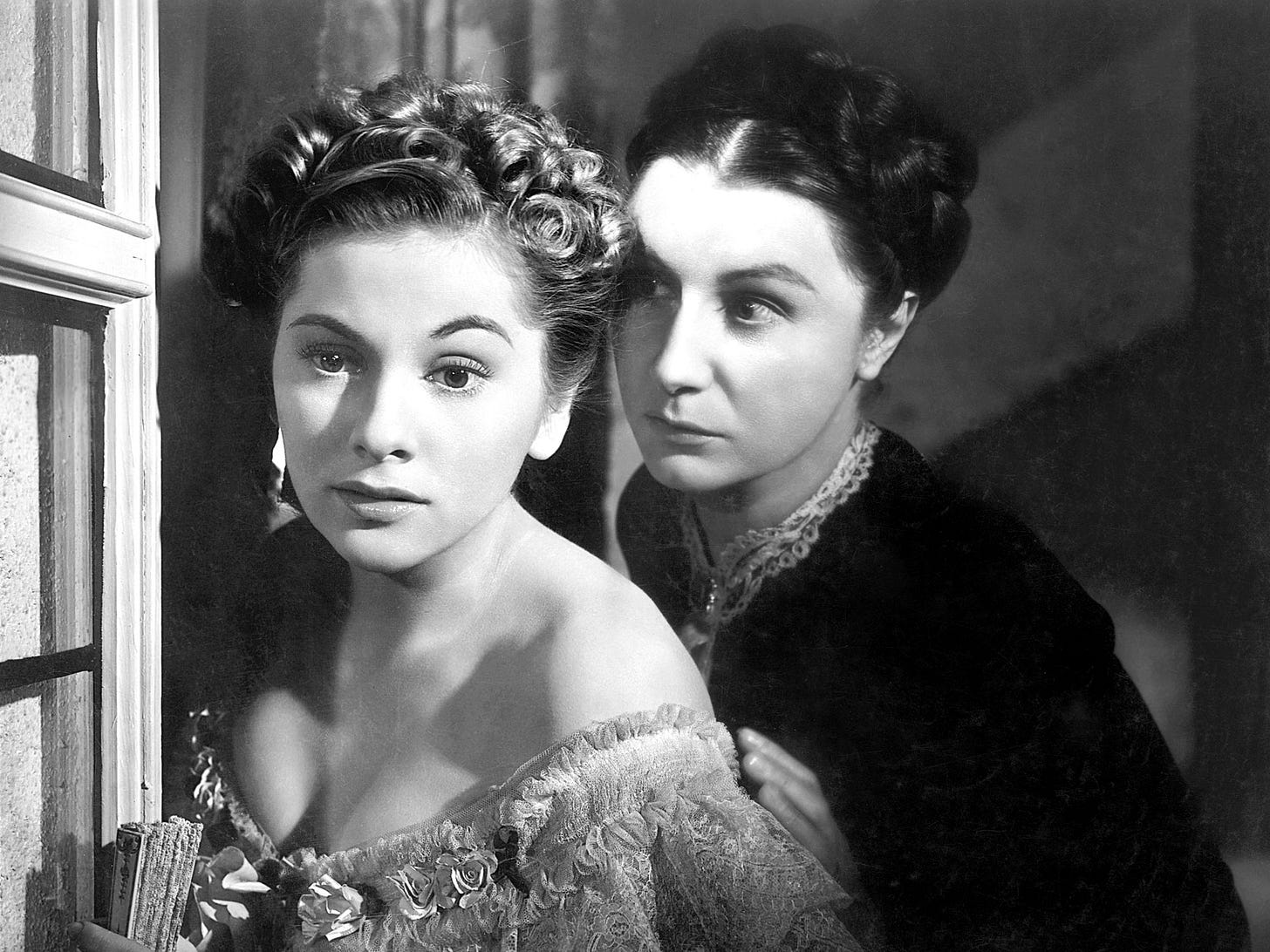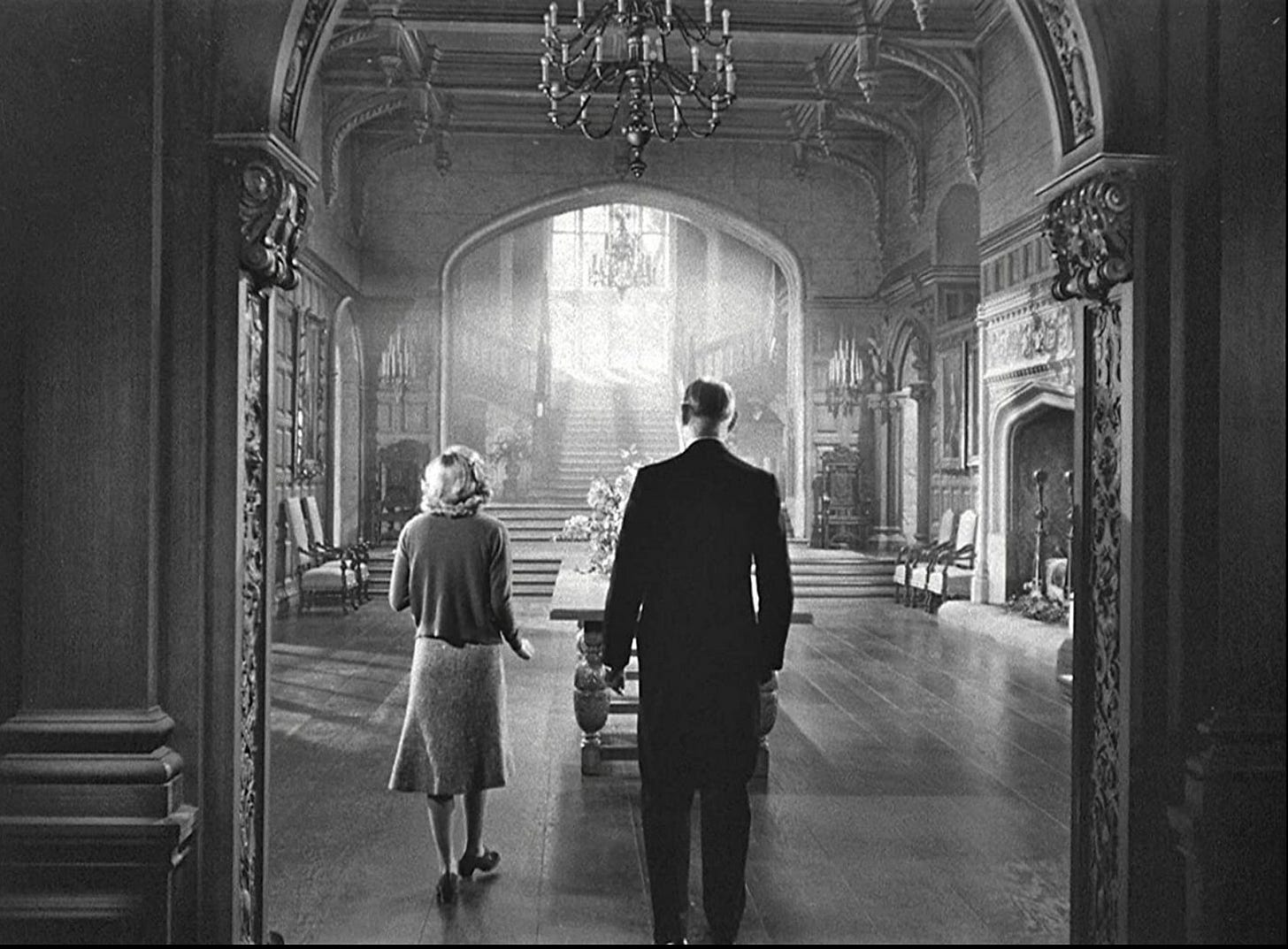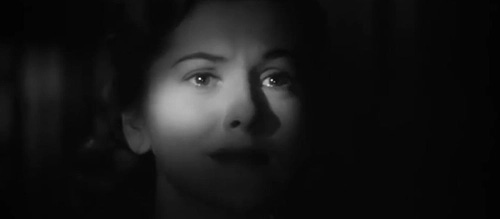Rebecca is a milestone in many ways. It was Hitchcock’s first American film, and his first film released with David O. Selznick. It’s the only film since 1936 to win the Academy Award for Best Picture without also taking awards in writing, directing, or acting categories. It’s also the only competitive Oscar Hitchcock ever received.
While traveling in the south of France as a paid companion to the wealthy Mrs. Van Hopper (Florence Bates), a nameless young woman (Joan Fontaine) crosses paths with the troubled, suicidal Maxim de Winter (Laurence Olivier). Mr. de Winter takes an interest in her and, in short order, marries her in the definition of being swept off your feet. Now, she accompanies Maxim back to his family estate Manderley, where is known only as the second Mrs. de Winter. As she tries to adapt to her new, and lonely, life at Manderley, she encounters reminders of Maxim’s first wife (Rebecca, the titular role) everywhere, but perhaps most ardently in conversations with Rebecca’s former lady’s maid Mrs. Danvers (Judith Anderson). When Danvers suggests the second Mrs. de Winter cosplay as one of the women in a giant painting in Maderley for Maxim’s costume ball, Maxim’s reaction is one of shock and hurt. The escalations and Mean Girling continue until Maxim finally reveals the devastating truth: he and Rebecca were never in love; she flauntered her affairs and threatened to ruin him if he ever tried to leave; and when Rebecca reveals she’s pregnant with her lover’s child (which everyone will assume is Maxim’s), she stumbles during their argument, hits her head, and dies. Maxim makes it look like an accident to prevent suspicion on him, identifying a random body that washes up on shore as Rebecca’s. Mrs. Danvers finally encourages the second Mrs. de Winter to kill herself since she’ll never live up to Rebecca and Maxim will never love her. But since secrets can never stay buried (or sunk), Rebecca’s boat runs ashore with her body inside, throwing Maxim’s whole story into doubt. When Rebecca’s lover (George Sanders), who is still skulking about, threatens to blackmail Maxim about the love child, Maxim faces an inquest, in which it’s revealed Rebecca was terminally ill with cancer and not pregnant at all. Maxim and the second Mrs. de Winter return home to discover Danvers has set the whole house ablaze, dying when the ceiling of Rebecca’s bedroom collapses on her. Like, calm down, lady.
That’s a lot of plot for a movie about a naive young woman rising above her station into a web of rich people’s lies!
One of the things that makes this film so watchable is the chemistry—and general beauty—of Olivier and Fontaine. Olivier’s debonair good looks read are giving masculine pretty boy (not sure how he pulled that off) while Fontaine’s unnamed young woman radiates the naivete of youth, that specific brand of optimism owned by people who’ve never lost everything. Olivier’s Maxim is mercurial and moody, a modern Heathcliff, maybe, imprisoned in his own house and haunted by memories of a woman he never loved. Fontaine, for her part, strikes the right note as the co-dependent (?) bride of an emotionally unavailable man (but then again, who among us hasn’t been?). Some dialogue is now hauntingly bad, such as when Maxim asks his wife, lovingly, never to wear black satin or pearls “or to be 36 years old.” Or, when she tells him “I’ve been thinking,” he interrupts to ask, “Now, why would you want to go and do that for?”
Despite the overripe sexism and infantilization, by the end of the film it’s clear Maxim does love his young wife, but the shadow of Rebecca’s treachery and his guilt over his actions kept him emotionally isolated. Mrs. Danvers, on the other hand, is Maxim’s opposite. She’s all in with Rebecca, maintaining her bedroom like The Official Rebecca de Winter Museum of which she is head curator, docent, and archivist. To quote Bridesmaids (2011): “We’re all thinking it, right? Lesbians!”
Rebecca probably wasn’t a lesbian, but she did seem to enjoy the benefits of a Sapphic obsession (but then again, who among us hasn’t?). Mrs. Danvers, in her all-black-everything, her curiously-alert expression, and Emily Dickinson ‘do radiates cunning linguist energy. In some ways, she predicts the sexual obsession of Scotty in Vertigo (1958), trying to recreate her lost love by dressing up another woman to play her like a role. This is an iconic lesbian performance, one for the ages, and like most lesbians in movies made before 1980, she dies a horrible death in front of our eyes. To be fair, she brought it on herself? “It” being the fiery ceiling.
I just love Rebecca. The visuals are so sumptuous, even in black and white, and the performances compelling. I love how cute and mousy Joan Fontaine is in this film, but the subtle refinements she adopts from meeting Maxim to finally clearing his emotional blockages. The mystery feels very Gothic and tortured, and I like that too—as Taylor Swift once opined, “Boys only want love if it’s torture.” (We can’t say she didn’t warn ya.) Well, Maxim is the icon that proves the rule, torturing himself over what feels like a generally-timely death of a horrible person who didn’t love him and in fact wanted to destroy him. All’s well that ends with Rebecca in the ground, I suppose.
Rebecca almost qualifies as noir. We have the Good Woman (Fontaine), doing her best to keep everyone from falling apart, and the Femme Fatale (Rebecca, and maybe Mrs. Danvers), and the tortured/conflicted man in the middle running from a horrible secret. The cinematography is high contrast, with deep blacks and blinding whites, full of shadows in which secrets and/or Rebecca’s spirit may be hiding.
Rebecca is also a reminder that the rich truly are disgusting people (Maxim may be exempt because he’s a Hot and married a semi-mousy Poor). Not only is Rebecca’s treachery alive and well years after her death, the staff who work in the house don’t show much class solidarity with their new mistress, leaving her in isolation to figure out what it means to “manage” a giant home nobody else lives in. But this, too, makes sense as maybe it’s the second Mrs. de Winter who is a traitor to her class, climbing the wealth ladder out of her indentured servitude labor into the emotional labor marriage promised most women at the time.
The real horror in Rebecca isn’t the threat that Rebecca’s spirit haunts them, or even that she was delightfully slutty in life, but that you can marry into money—but that doesn’t mean the money’s going to love you back.





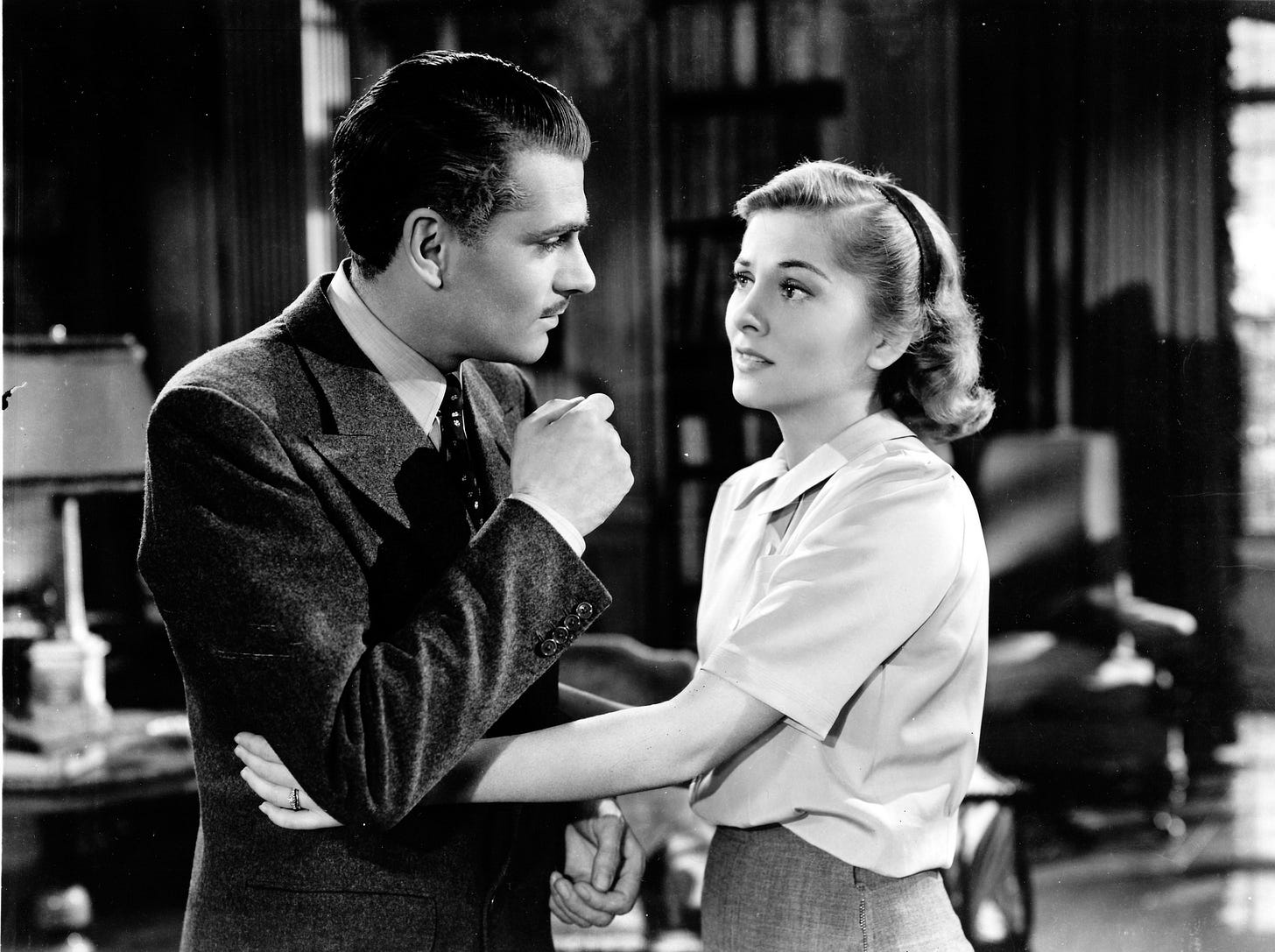
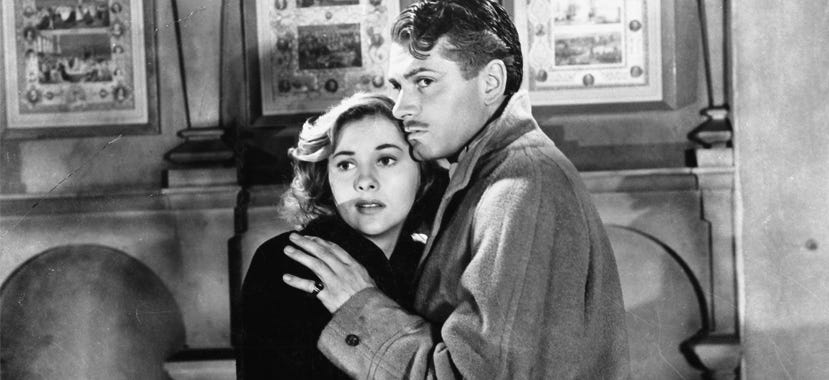
![Rebecca – [FILMGRAB] Rebecca – [FILMGRAB]](https://substackcdn.com/image/fetch/$s_!BA_z!,w_1456,c_limit,f_auto,q_auto:good,fl_progressive:steep/https%3A%2F%2Fsubstack-post-media.s3.amazonaws.com%2Fpublic%2Fimages%2F4a1712a1-623a-43e6-85f4-c7fe9e639ec6_968x720.jpeg)
